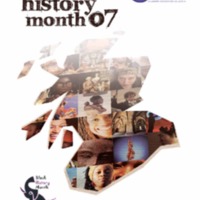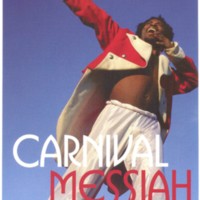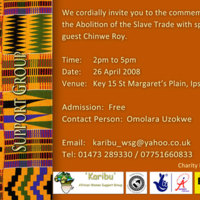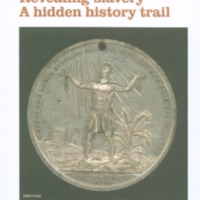
Black History Month 07
Glasgow Anti Racist Alliance (GARA) organised a programme of events for Black History Month in October 2007 with a particular focus on the bicentenary and engaging people in the importance of Black history. GARA were supported by Glasgow City Council Education Services and Culture and Sport Glasgow. Events included talks at the Hunterian Museum, interactive exhibits at the Glasgow Science Centre and film showings, capoeira and African drumming workshops at the Glasgow Film Theatre. Sugar & Spice Sunday on 14 October marked the bicentenary with a festival of commemoration and celebration through films and events. GARA also hosted Black History Tours around Glasgow to explore the city's hidden slavery history.

Carnival Messiah at Harewood
2007 saw a number of different projects taking place at Harewood House in West Yorkshire, home of the Lascelles family. The bicentenary was used as an opportunity to explore the family connections with the transatlantic slave trade and the sugar plantations of the West Indies.
To spotlight Harewood House's historic links with the Caribbean and carnival, in September 2007 a production of Carnival Messiah was held in a Big Top in the grounds. Carnival Messiah is a reinvention of George Frideric Handel’s oratorio Messiah as carnival theatre and heritage experience. The West Indian celebration features dancers, singers, masqueraders, musicians and actors. Stories from the Caribbean folk tradition, medieval mystery plays and African ritual combine with contemporary popular music and dance styles, including gospel, calypso, reggae, jazz, hop hop, bhangra and steel band. Geraldine Connor was Creator and Artistic Director and David Lascelles of Harewood House was Executive Producer. A community education and outreach programme ran alongside the project.

Karibu African Women's Support Group
Karibu provides information, advice and help service to African women and their families in Ipswich and Suffolk. Karibu women joined the celebrations marking African History Month in Suffolk in 2007. The event 'Reaching Out Promoting Cultural Values' was designed to reach out to other local communities. It featured a keynote speaker address, workshops on health and beauty, and parades of foods and culture from Africa. 'Our Children Our Pride' was an activity day featuring carnival arts and crafts, drumming sessions, dance, and stories from Africa.

Revealing Histories: Remembering Slavery (Bolton Museum and Archives)
Bolton Museum and Archives was one of eight heritage bodies in the 'Revealing Histories: Remembering Slavery’ partnership in Greater Manchester. The project set out to explore the history, impact and legacy of slavery on Britain through collections and community links in the North West.
Bolton Museum and Archive Service launched a trail around its galleries to re-interpret objects on display in the context of slavery and its legacies. At the centre of the trail was Samuel Crompton's spinning mule, a machine which helped to revolutionize the British cotton industry. As part of the project, Bolton Council republished and distributed 'The Narrative of the Life of James Watkins', originally published in 1852. Watkins escaped slavery in the southern United States and travelled to Lancashire to become an anti-slavery campaigner. The museum also hosted African folk storytelling sessions, and produced a Key Stage 3 education pack, 'Chains and Cotton: Bolton’s Perspective on the Slave Trade'. A special event day, 'Facing up to the past' featured performances, poetry reading and debate.